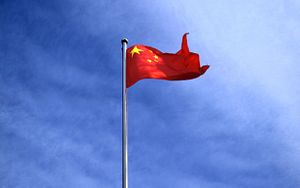The COVID-19 pandemic, involving a novel strain of coronavirus, has claimed over 3,000 lives in China and worldwide. China, vulnerable and ever more attentive to its international prestige, has identified friends and adversaries in this time of crisis, as revealed by its official rhetoric and media narratives.
China has shown an affinity for using diplomatic protocols to signal to other states where their official relations stand with China. In regards to the coronavirus, on February 5, China’s Foreign Ministry listed “ the governments of 21 countries” who had offered “friendly understanding, support and help” during the crisis, namely “ROK, Japan, Thailand, Malaysia, Indonesia, Kazakhstan, Pakistan, Germany, Britain, France, Italy, Hungary, Belarus, Turkey, Iran, the United Arab Emirates, Algeria, Egypt, Australia, New Zealand, Trinidad and Tobago, and UNICEF.”
As confirmed by the Global Times, the “friendly nations list” embodies diplomatic messaging to signal states about where they stand in their relations to China. South Korea and Japan topped the list, indicating “approval of the two neighbors,” as remarked by the paper. Foreign ministry spokesperson Zhao Lijian remarked that China will never forget South Korean President Moon Jae-in for stressing, “China’s difficulties are the ROK’s difficulties.” Another spokesperson, Hua Chunying, said she was “deeply touched” by Japan’s assistance.” Japan’s aid slogan — “Though miles apart, we are under the same sky; together we stand, my armor’s thine” — was heavily circulated by the state media and social media accounts.
The Chinese foreign ministry also praised the headmaster of a Japanese school who sent letters to parents, telling pupils that “this is not the time to badmouth China and Wuhan.” This reflects China’s aversion to losing prestige during a crisis that makes its leaders and system appear vulnerable. In contrast to the praises for Japan, China’s foreign ministry has put accusations of “badmouthing China” as a center point of its criticisms of the United States. China revoked the press credentials of three Wall Street Journal reporters after the paper ran an editorial by academic Walter Russell Mead referring to China with “racist and wrongful words” through the title “The Real Sick Man of Asia.” In response to Secretary of State Mike Pompeo’s remark that “free press reports facts and expresses opinions,” the Chinese government criticized Pompeo for making “another attempt to back up WSJ by badmouthing China.”
Yet, in explaining China’s attitudes toward different counties, neither deliveries of medical assistance nor the contents of government statements or media commentaries seem to be the deciding factor. Despite its critical situation, China three times turned down the United States’ offer to send experts to combat the virus. It wasn’t until February 3 that China finally accepted U.S. professional aid as a part of a WHO mission. However, in its criticisms, Global Times has emphasized that “the American people are indeed nice,” but the American government, citing the words of Hua Chunying, “hasn’t provided any substantive assistance to us.” Meanwhile, even though xenophobia toward Chinese is observable in Japan, with the hashtag #ChineseDontCometoJapan trending on Twitter, China’s state media has selectively reported on the friendliness of the Japanese people.
While China has criticized the United States for setting “a very bad example” by “being the first to withdraw its embassy staff, and impose [a] travel ban,” Russia’s decision to ban Chinese travelers was condoned by the Chinese foreign ministry. Spokesperson Geng Shuang remarked that “Russia has informed China in advance through diplomatic channels of the above-mentioned measures against the [novel coronavirus outbreak]. It also stressed its firm support for and strong confidence in China.”
China’s double standard in reacting to the United States, Japan, and Russia is telling. It tells us more about China’s current state of diplomatic relations with these nations rather than their political actions per se. In addition to the disgruntling trade war and its moral support for Hong Kong protesters, the United States has in recent months upset Beijing for passing the Tibet Policy and Support Act in the House of Representatives; sending a warship near contested South China Sea islands; as well as upping efforts to dissuade allies from using Huawei’s 5G service. Bilateral relations between Japan and China, on the other hand, have gradually improved since 2014. Koichi Nakano, a Sophia University professor, has stated that China’s Xi Jinping and Japan’s Shinzo Abe are currently in a “marriage of convenience in face of the common threat” – Trump’s declaration of a trade war on China and Japan. As for Russia, its closeness with China is self-explanatory.
In another example, China’s media was either reticent or reacted neutrally toward South Korea and Thailand’s decisions to curb or ban face mask exports, but Taiwan’s face mask export ban was met with scathing criticisms from all sides within China. The case reflects an increased animosity toward Taiwan’s Democratic Progressive Party, which the media has never bothered to hide from the Chinese mainland public.
China’s differing attitudes can thus be better explained through the lens of diplomatic interests. China’s government has measured its decisions to express approval, disapproval, and control the shift in relations, and the state media has accordingly pushed the narrative. Such cases further demonstrate China’s ability to shape the domestic narrative toward whatever direction it needs, regardless of whether or not countries have in reality assisted or badmouthed China during the pandemic.

































